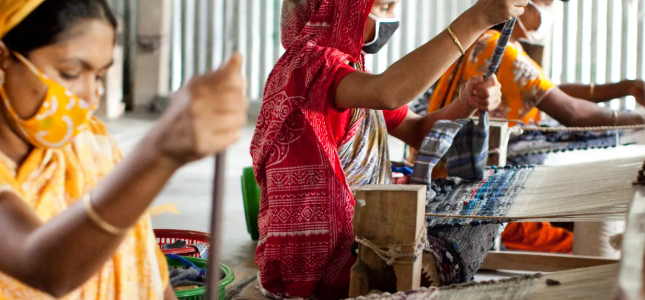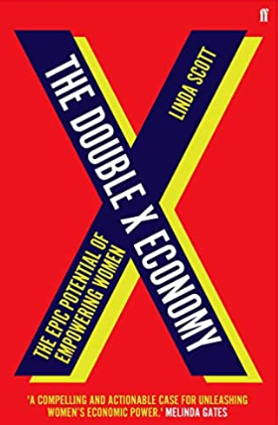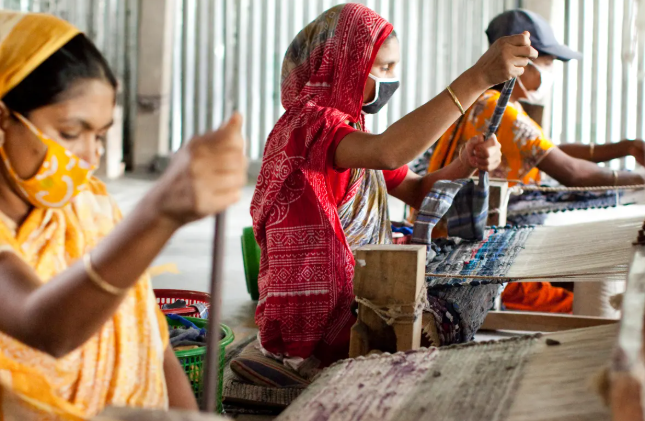
When we Empower women, we all win



In 1959 contraception was finally made available to unmarried women in the UK, Helen Brook a family planning pioneer said “To think that at last women could be in charge of themselves, decide for themselves. Women were really going to be free.”
Six decades later are women really free as pay inequality is entrenched in every country of the world, abortion and other reproductive rights are being rolled back in many nations, rape, domestic violence, sex trafficking, and forced marriage continue unabated.
In the UK women’s incomes already 18 to 45 per cent lower than men’s have dropped since the Covid-19 pandemic lockdown began, most of them have lost their jobs or had to quit their job, and they already unequal burden of housework and childcare has soared. Women are also on the pandemic’s frontline carers, cleaners, nurses, and other key workers, disproportionally exposed to the virus and disproportionally at risk of dying from it.
“Modern slavery is 71 per cent female, 80 per cent of the earth’s farmable surface is owned by men. When we fail women, we all lose. Allowing women farmers the same resources as men would reduce the number of chronically hungry by up to 150 million. Giving female entrepreneurs in Britain equal access to capital would add GBP 250 billion to the economy. The global economy’s wealth would be GBP 160 trillion higher if the gender pay gap were closed. When we Empower women we all win it’s time to unlock the power of the Double X Economy.
Linda Scott, professor of entrepreneurship and innovation at the University of Oxford is an expert on women’s economic development, has spent decades studying the obstacles to female equality, running community projects in Africa and Asia, and engaging with policymakers and business leaders reveal in her book The Double X Economy, how the only effective way to make fundamental and lasting improvements for women is through economic empowerment- an idea that has been neglected by many feminists and ignored or dismissed by the men who dominate the economic policy and practice at every level of the global economy, from company directors in G7 countries to farmers in ~Africa and Asia.
Gender inequality costs the world economy $160tb a year ( a combination of women being paid less and doing less paid work). In the UK alone, the gender gap costs women £140bn a year in pay. Living in the economic shadowlands affects women everywhere and Scott reveals how the chain that binds them is interlinked. The sweatshop female labourer in Bangladesh who produces cheap garments and the low—paid woman in America who buys them are both on the bottom rungs of their country’ s business models.
“When it comes to economic choices, women can seldom act independently, as they are often coerced into acting irrationally… that is against their own best interests” Scott argues.
The project she ran in a village in Ghana to examine whether teenage girls could be helped to stay longer in school by giving them disposable sanitary pads, as without them girls had little choice but to leave school and get married as soon as they began menstruating when they come to be seen as a financial burden by families, and sexually available by local men. Equipped with sanitary pads, the girls were able to conceal their fertility for longer, and many chose to remain in education.
“The bottom line is that women’s economic subordination comes from the power that men have to make women work in service to them for less or no pay. The cause of male aggression and control of resources rather than men’s natural superiority as stronger, braver, and more important beings”, Scott writes explaining the ingrained social, financial and sexual inequality, historical power-grabbing and economic opportunism.
The author challenges the presumption that economic wealth leads to gender equality, arguing that causation works in the opposite direction: gender equality leads to wealth. Equal and gender-mixed societies are less violent, more prosperous, and more stable. Profits go up in companies with more than 30 per cent of women on their boards, recklessness, aggression, bullying and sexual harassment go down. “ We need to select for sharing or we will die. Male dominance has proved to be a disaster.”
Scott proposes a global shopping strike, pro-women trade agreements, universal childcare, ethical consumption, and gender supportive investment. How does one curb the destructive and short-sighted economic practices driven and maintained by those least likely to agree that a radical change of course serves their interests?
The Double X Economy: The Epic Potential of Empowering Women by Linda Scott, Faber £18.99, 365 pages.
